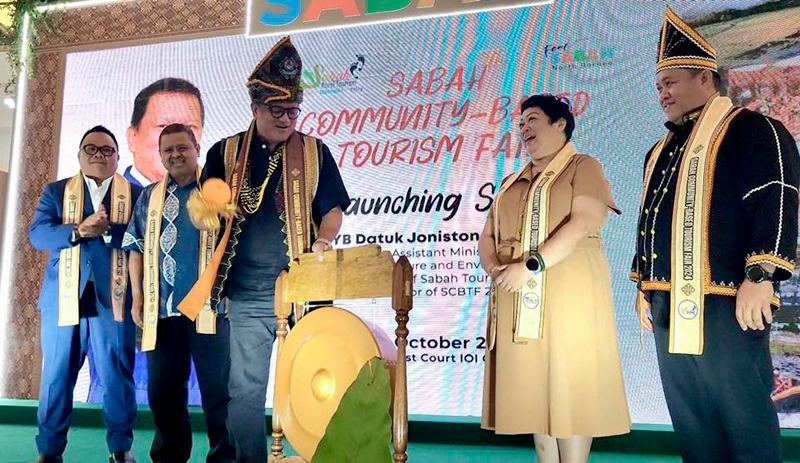PUTRAJAYA: The Sabah Tourism Board hopes the federal government will reintroduce the cruise ferry service, Feri Muhibbah, which connected Peninsular Malaysia with Sabah and Sarawak in the 1980s.
Sabah Tourism Board chairman Datuk Joniston Bangkuai said reintroducing the Feri Muhibbah service could help promote tourism in the state, particularly community-based tourism.
“We have received many complaints from tourists in the Peninsula about the relatively high (expensive) airfare.
“There is definitely a need for a cheaper mode of transportation like the ferry, which has the advantage of carrying other vehicles, allowing tourists to Sabah to travel around the state in their own cars,” he told the media after officiating at the Sabah Community-Based Tourism Exhibition here today.
Joniston, who is also the state Assistant Minister of Tourism, Culture and Environment, said reinstating the ferry service would provide more transportation alternatives and boost travel between Peninsular Malaysia and Borneo.
“Perhaps not many people know that back then, Feri Muhibbah was Malaysia’s first and largest cruise ferry owned by the Malaysian government, operating for national integration.
“However, this service was discontinued a few years later. I believe that if it is brought back, many parties will support this initiative,” he said.
Regarding the Sabah Community-Based Tourism Exhibition, Joniston said 27 tourism associations from 22 districts in Sabah, along with five local craft entrepreneurs, are participating in the five-day exhibition, which ends tomorrow.
“These associations represent rural communities and play a crucial role in promoting community-based tourism destinations.
“This exhibition marks an important moment for rural communities in Sabah involved in tourism. It is an opportunity for them to promote their villages and share the unique experiences they offer, such as homestay accommodations, eco-tourism adventures and cultural activities, with a wider audience,” he said.
For the villagers involved in these initiatives, Joniston said the exhibition connects them with more opportunities to further develop community-based tourism.









